SearchEye Launches Pro Membership
Flat Price Mentions, Digital PR, Exclusive Opportunities, access to 5,000+ opportunities.
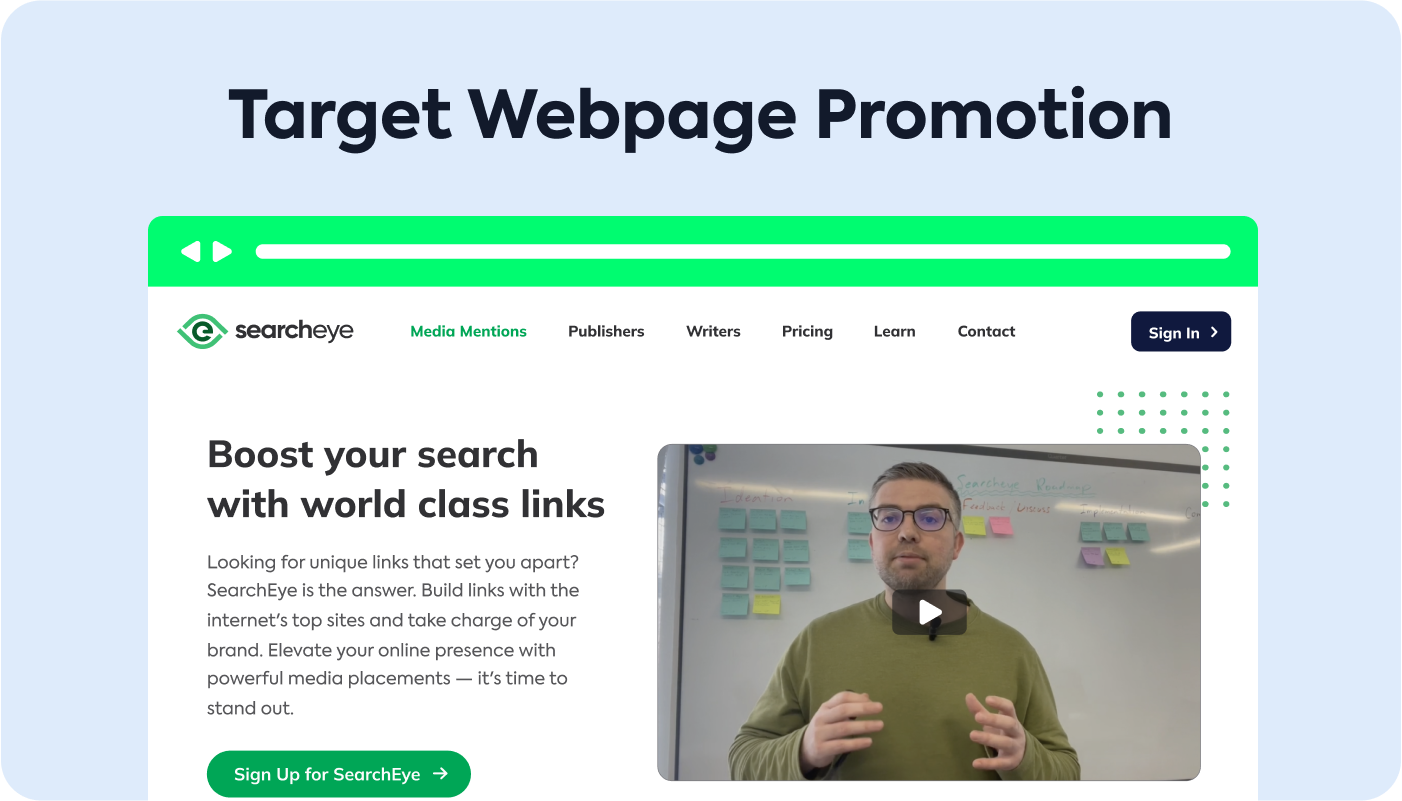
Search engine optimization (SEO) efforts require a combination of different internal adjustments and external connections and collaboration. Coordinating a successful SEO strategy entails link-building, which involves getting other websites to link to your web pages.
Business websites often have different web pages in their arsenal. You can categorize these pages into the home page, product or service pages, and resource pages. Let’s discuss how you can select the best web pages for your link-building efforts.
Here at SearchEye, we offer different mentions across various written content types. Each mention has its unique characteristics and works best with specific linked pages.
Here is a quick guide on the mentions we offer and our recommended link placements.
Mention Type | Example | Which Page to Target |
Link | 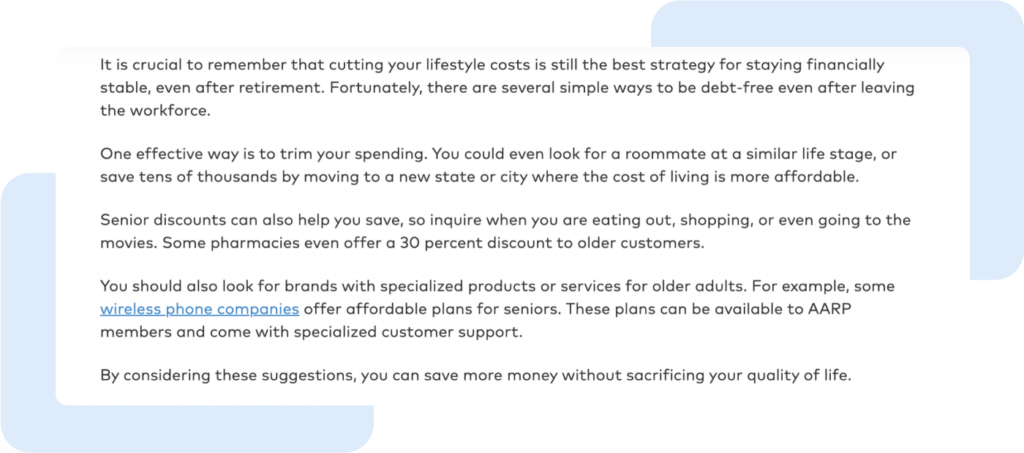 | Typically promote an internal product or resource page (recommended). Higher relevant page = more valuable. |
Expert Quote | 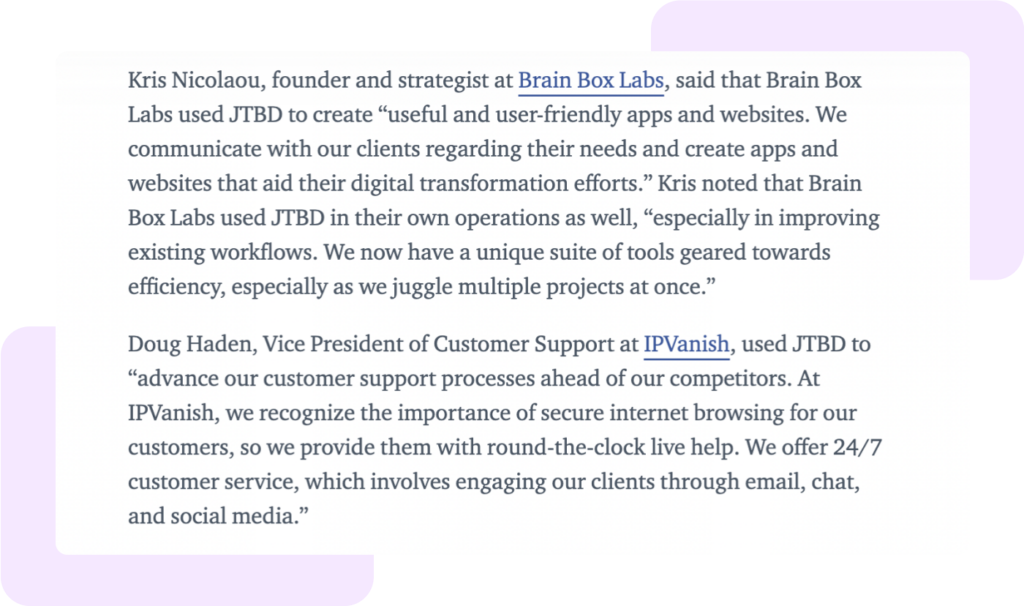 | Typically promote your homepage. |
Brand Mention | 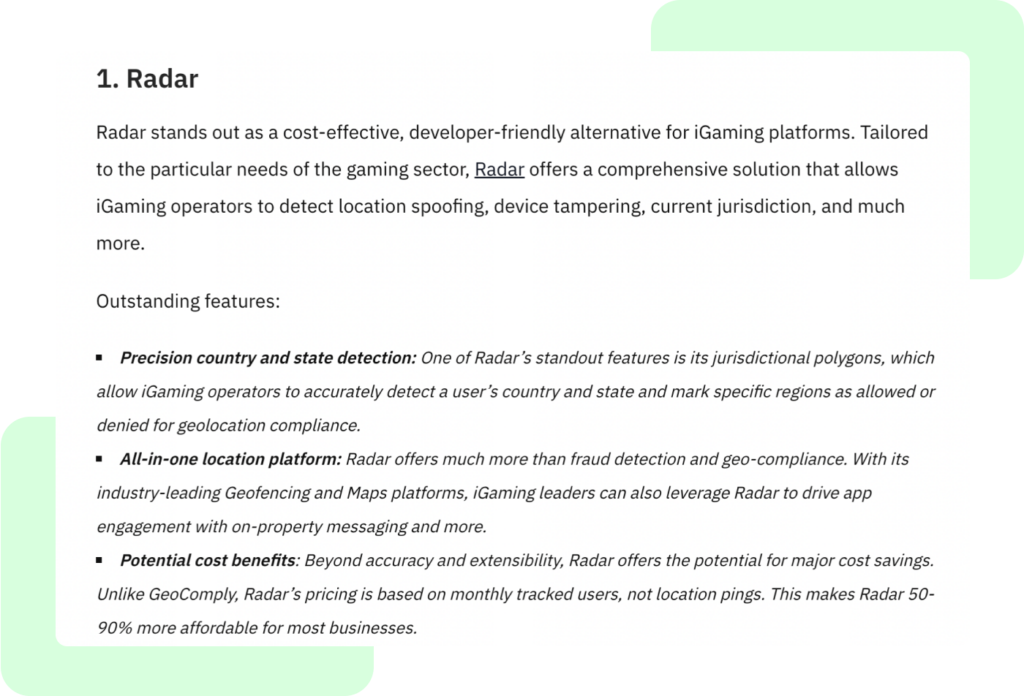 | Typically promote your homepage or product page. |
Interview | 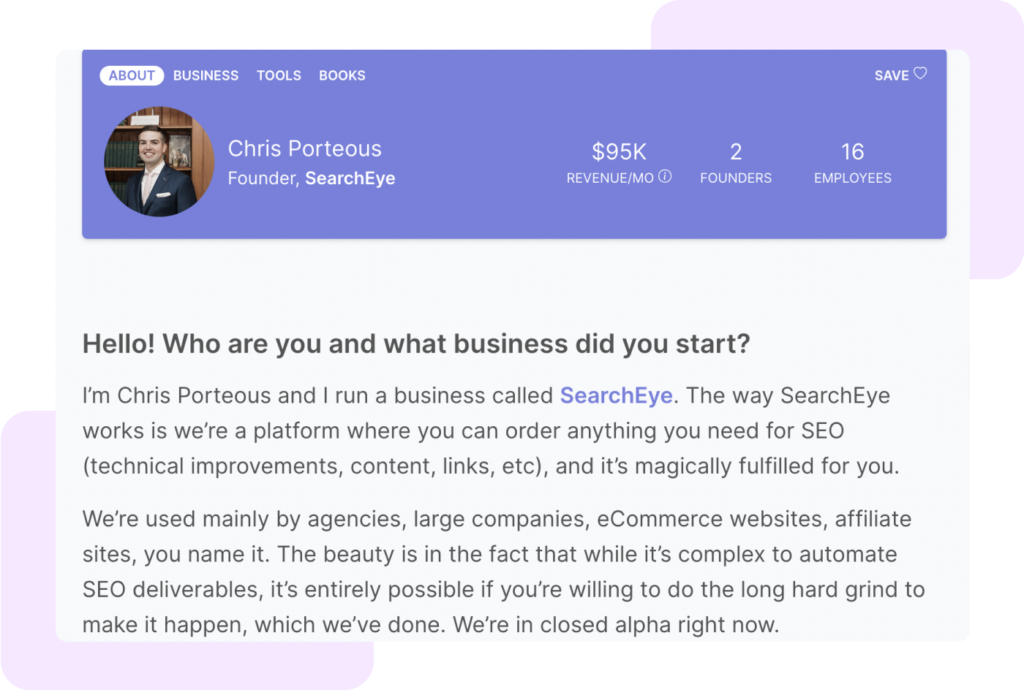 | Typically promote your homepage. |
Full Feature | 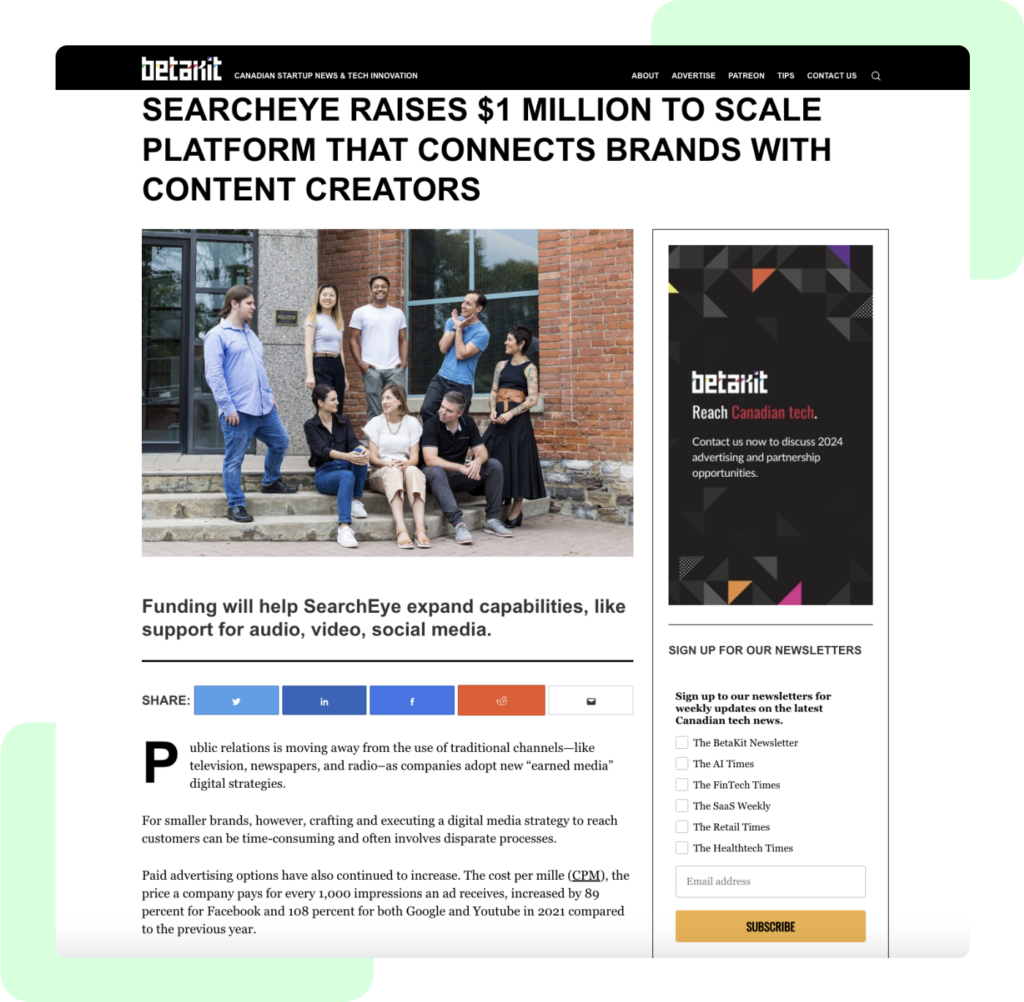 | Typically promote your homepage. |
A link, also called a hyperlink, is a way to connect one web page to another. When someone clicks on a link, they arrive at a destination page. This destination page could be on the same website or a different one.
Links play a significant role in helping sites perform better on search engines. External links or backlinks help search engines find your website more quickly and increase its authority and credibility.
When SearchEye places links to your website on a content piece, we recommend selecting a product or resource page. These pages often work better and blend more easily with the existing content.
An expert quote is when we insert a direct quote into a content piece and cite a brand’s representative as the source. The representative will speak about a topic related to the article and expound on ideas that might relate to the brand’s products or services.
This type of mention is an excellent way to inject your brand voice into a piece of content. It allows you to establish your credibility and attract new audiences to your site.
For an expert quote mention, we recommend linking back to your homepage. Your quote can be a jumping-off point to introduce your company to audiences that might align with your company’s vision and product or service offerings.
A brand mention is when a brand, product, or service gets acknowledged or referenced in a piece of content. We could name the brand and its products explicitly or be more implicit and simply allude to the brand, its products, or its values.
Brand mentions are essential to any digital or content marketing strategy. It’s an excellent way to get more eyes on your company and help audiences remember your brand.
In this type of mention, your brand is not the main focus of the content. Instead, it gets subtly incorporated into the piece. This placement ensures that the content does not come off as overly promotional.
When incorporating a link as a brand mention, we recommend placing a link to a product page or your homepage. These links provide better value to readers, especially if the linked product or brand relates to their needs or a topic that interests them.
An interview could come in a Q&A format or as a feature article. What sets it apart from other mention types is that it gives brands extended exposure, as their words become the meat of the content piece.
An interview article could have multiple interviewees, typically brand representatives or professionals, sharing their experiences and expertise.
This type of mention is an excellent way to establish credibility and authority within one’s niche. It lets you directly promote your product or service or share your brand’s success, story, and vision. It can also help brands engage directly with their audience by answering questions and addressing concerns.
In an interview mention, we recommend linking back to your homepage. Interviews offer a broader view of your company, its offerings, and its values. A link to your homepage opens up an avenue for audiences to explore your brand.
As the name suggests, a full feature is an article focused entirely on your brand, leaders, products, services, values, and unique characteristics. It aims to create and present an engaging story about your brand, explaining what makes it valuable for your audience and sets it apart within the industry.
A full feature can help you strengthen your brand identity, showcase your strengths, and position yourself as a thought leader or expert. You can share your insights, recount your growth journey, or humanize your brand by discussing your employees and company culture.
For a full feature, we recommend linking your homepage. This type of mention can cover a lot of ground. Your homepage is an excellent place to encourage readers to learn more about your brand.
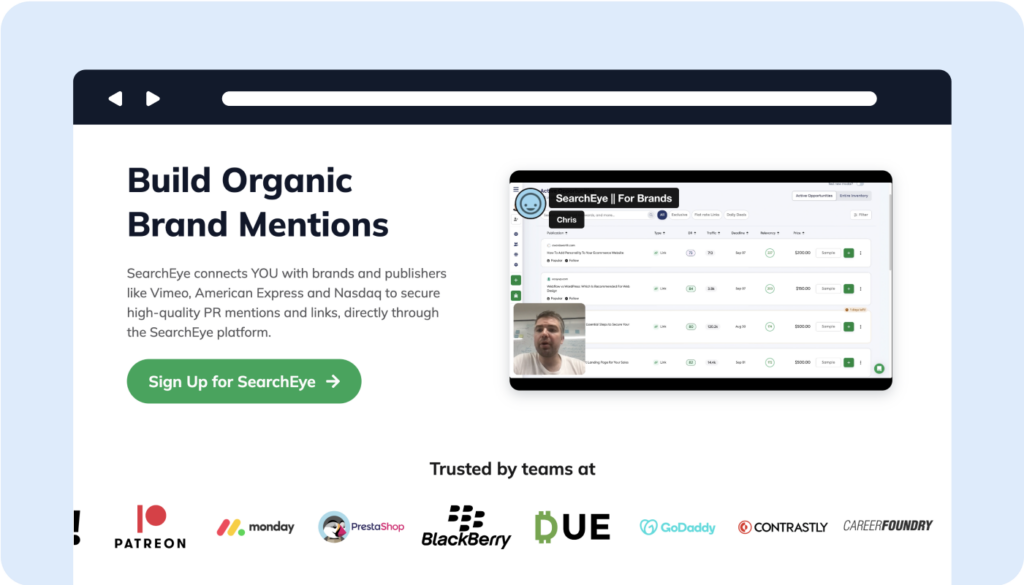
Why is there a distinction between product/service and resource pages and a website’s homepage? Different web pages perform various functions and communicate different messages. Each page has unique characteristics that work best with specific content mentions.
In our experience, product/service and resource pages work best in link mentions. We insert links into content pieces that address potential audience concerns or topics of interest.
These types of pages provide the most value for our readers. They are often more relevant to the content topic and are more likely to offer solutions to problems or questions readers might have.
Most publishers also prefer link placements not to be overly promotional, as it could affect the quality or integrity of the content piece. In most articles, it’s more natural to link to an educational resource, product, or service than a brand name.
The principle “higher relevance equals more value” applies significantly in these situations. Here’s an example of using a product, service, or resource page when linking vs. using the homepage.
The homepage is the primary or introductory part of your website. Many visitors start on this page before moving to other product or resource pages within your website.
We recommend linking to your company’s homepage for expert quotes, brand mentions, interviews, and full features. These mentions often mention your business or company by name, so it makes sense to lead readers to your company’s main page.
Linking to the homepage in these mentions or articles invites readers to access your company’s core. They can experience your brand for themselves and help increase brand recognition.
These content pieces will likely discuss your company at greater length, discussing your products, services, values, and culture. Leading readers to your homepage allows them to access these different aspects of your company through your website.
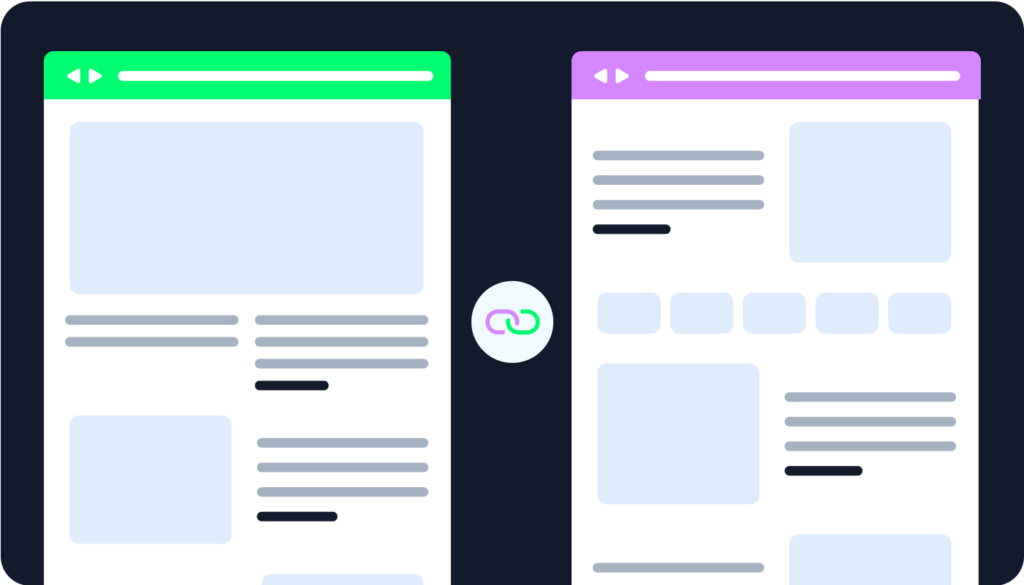
Creating backlinks and promoting your content is both a science and an art. While you can be creative in choosing link placements, we have some recommendations for making the most of your page-linking strategy.
A website comprises different web pages that work within a hierarchy. In most cases, resource and product/service pages exist lower down the chain. These pages cover more specific topics and often have a singular purpose.
As we go up the ladder, we see the homepage at the top. The homepage covers the most ground and guides site visitors to the different pages within your website.
When linking pages, it’s essential to understand where the page lands within this hierarchy. The content’s context must match the linked page’s relevance. This practice ensures a more natural and beneficial connection.
The anchor text is the clickable text attached to a link. In most cases, it will serve as a brief descriptor of the linked page’s content. It also provides context for readers and search engines.
When selecting anchor text for your links, using descriptive and relevant phrases that accurately represent the linked page’s topic is best.
For example, instead of writing generic anchor text like “click here,” use specific phrases or keywords that convey the content’s context and relevance.
Descriptive anchor text informs readers about the linked content and helps search engines understand the link page’s relevance, which can help your SEO efforts.
Contextual linking refers to incorporating links within your content in a natural and relevant way. Contextual links aim for seamless integration into the text. As the name suggests, they also provide additional context or related information to the reader.
Contextual links work similarly to descriptive anchor text. However, they go one step further and ensure the link doesn’t look out of place within the content.
For example, the anchor text “managing your reputation online” works better in an article or section about digital marketing than in a piece about children’s study habits.
Properly selecting which web pages to promote is good for SEO, but it is also critical to achieve your overall business goals.
Selecting pages that already attract traffic and rank well is a good practice. Well-performing pages will likely gain even more attention if you use them for backlinks. This strategy will also help bring up your entire website’s SEO performance.
However, the page you select will influence the audience you bring to your website. While a specific page could gain more traffic, you need to consider if it is the traffic you want. Consider the audience for that particular web page. Is it the audience you want to visit your website?
These considerations will help you improve your selections for web page promotions.
Selecting the best web pages to promote in your linking strategies requires both an art and a science. It involves understanding the content you are working with and aligning it with your business goals. These practices allow you to craft page promotion strategies that boost your SEO performance and aid business growth.
Flat Price Mentions, Digital PR, Exclusive Opportunities, access to 5,000+ opportunities.
Writing is an art. Each writer brings a unique style when crafting their blogs. However, a blog’s structure can significantly. [Read more]
Search engine optimization (SEO) efforts require a combination of different internal adjustments and external connections and collaboration. Coordinating a successful. [Read more]
Content creation and management have grown exponentially in the past years. With the advent of AI in content generation, it’s. [Read more]
